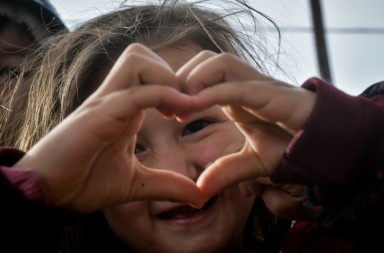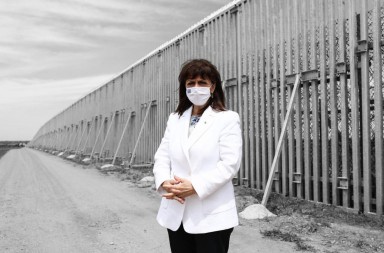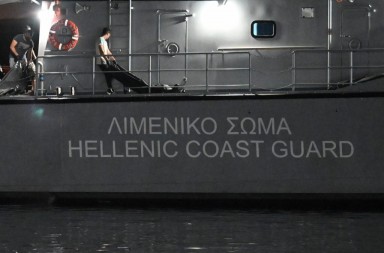Ο φωτογράφος Alessandro Penso τράβηξε αυτή τη φωτογραφία την στιγμή που ένας νεαρός άνδρας από το Μαρόκο χτυπιόταν από αυτοκίνητο στην Ελλάδα, κατά τη διάρκεια ρατσιστικής επίθεσης από ντόπιους. Ο Penso επίσης αναφέρει «Πήγα να τον δω στο νοσοκομείο. Είχε μαζί του ένα έντυπο από την αστυνομία που του έλεγε ότι πρέπει να φύγει από τη χώρα μέσα σε 15 μέρες διότι βρίσκεται σ’ αυτήν παρανόμως».
Το άρθρο του Sean O’ Hagan στον Guardian
Alessandro Penso captures the pitiful plight of Greece’s teenage migrants
Penso’s reportage-style shots deserve the Terry O’Neill award – but for me the haunting narratives of shortlisted photographers Wendy Sacks and Mimi Mollica stand out the most
Alessandro Penso pressed his shutter the precise moment a young Moroccan man was hit by a car in Greece in a racist attack by locals. Afterwards, Penso explains, «I went to see him in hospital. With him he had a police form which asked him to leave the country within 15 days because he was there illegally.»
Mostafa El Mouzdahir was one of a group of young migrants, aged 14 to 18, Penso photographed in 2012 for his dramatic series Adolescence Denied, which won the Terry O’Neill award last week. The series was taken in the port city of Corinth, where young men from all over the Middle East and Central Asia live precariously as they attempt to illegally board lorries that will carry them further into Europe. Many of them were from Afghanistan, had fled the forced militarisation practised by the Taliban and were now living in fear of police capture and racist attacks.
The Terry O’Neill judges concluded that Penso’s series «captures [migrants’] lives in limbo when they are left stranded looking for both safety and a future. We hope his work will help inform future generations of the depth of the crisis.»
Of the 10 shortlisted photographers, I was most taken with the work of Wendy Sacks and Mimi Mollica, both of whose collections are less straight reportage than Penso’s, and all the more evocative for that. Sacks, who came second in the award, is a former paediatric emergency physician who gave up her job due to severe arthritis. Her images of children half-submerged in water tanks have a dreamlike intensity, and show the painful personal memories she is working through. Though I am suspicious of photography as therapy, these images touch on something mysterious, even transformative.
I have written about Mollica’s black-and-white images of contemporary Sicily before. Their haunting quality evokes not just the atmosphere of the place itself, but our own preconceptions of it. This is Sicily as a state of mind as much as a real place. A word, too, for Marc Wilson’s landscape series The Last Stand, which documents «the physical remnants of war in the 20th century in the UK and northern Europe … these manmade objects and zones of defence now sit silently in the landscape, imbued with the history of our recent past.» Muted and melancholy, Wilson’s images have a real sense of place and are perhaps the most unified and evocative narrative on the shortlist.
Via : www.guardian.co.uk



